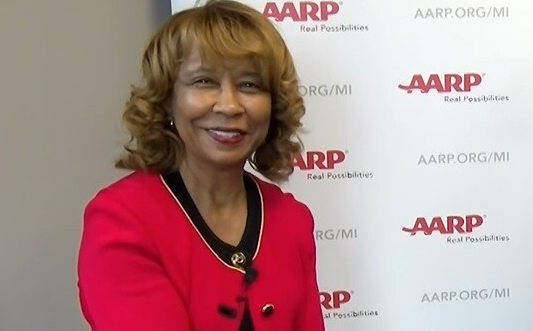AARP Hearing Center
By Paula D. Cunningham, AARP Michigan State Director
Last November, millions of Americans did the unthinkable … they celebrated Thanksgiving over Zoom, a digital gateway designed to connect people onscreen, but lost in cyberspace was the much deeper human need to connect.
For more than 18 months, the COVID-19 pandemic has given all of us a taste of social isolation firsthand. We’ve missed major milestone moments along with countless simple, shared moments. Typically, such isolation is something we might otherwise experience later in life as we age, but the pandemic has brought this home to all of us.
So what is the cost of being isolated from one another? Quite frankly, the price we pay can be our health. There’s no doubt the effects of social isolation and loneliness are real, carrying with it significant health risks like heart disease, high blood pressure and sleep disorders. Incredibly, decades of research show that the risks tied to isolation are worse for health than obesity and can be as damaging as smoking 15 cigarettes a day.
Make no mistake about it. The prolonged extent of the COVID-19 pandemic has spurred a rise in social isolation and loneliness, reaching epidemic proportions and elevating health risks, particularly for older adults. In fact, two-thirds of U.S. adults report experiencing social isolation and more than half (66%) agree that the COVID-19 pandemic has caused their anxiety level to increase, yet many are not turning to anyone for help.
Social isolation is a rising health crisis and older adults are more at risk. To find out what you can do to make a difference, please download the Community of Hearts Mental Health Resource Guide for helpful resources to help you stay connected.
































































